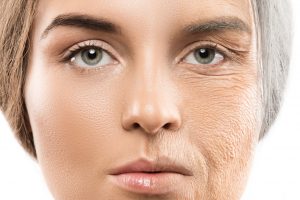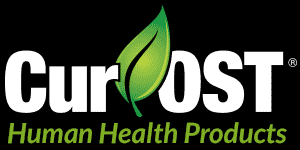Aging is inevitable and with each passing year, we begin to notice changes to our bodies and our health. We don’t have the strength and vitality that we did when we were a teenager, that’s for sure. But even as we go from our 30’s to our 40’s, and to our 50’s or beyond, definite changes are obvious that contribute to health concerns such as immobility, low energy and daily aches. Why do we age and is there something we can do about it? Maybe slow it down…even just a little?
Aging is a fact of life and there has been much research conducted on the subject, because it impacts all of us. It is a unique process impacting all species. As we grow older, our body parts begin to break down, not functioning like they used to. Most of us experience joint changes first with arthritis popping up in our hands, hips, knees and even back. In other cases, we might not have as much energy, muscle strength or our eyesight might not be as sharp. Others might experience slowly degrading organ function including the brain, liver, kidneys and even gastrointestinal tract.
with arthritis popping up in our hands, hips, knees and even back. In other cases, we might not have as much energy, muscle strength or our eyesight might not be as sharp. Others might experience slowly degrading organ function including the brain, liver, kidneys and even gastrointestinal tract.
According to statistics, our life expectancy is increasing. We are living longer, but a high percentage of us are living those added years in poorer health. Many would like to live to 100, become a centenarian. What is the benefit to extending our lives if we are in constant pain or overall poor health? Are we more interested in ‘quality’ of life or ‘quantity’? Can we maybe have both? Wouldn’t that be ideal!
Age related diseases are a main group of chronic health conditions that will impact all of us on some level and the leading causes of all mortality, not to mention healthcare costs. These conditions include arthritis, diabetes, cardiovascular disease, kidney disease, certain liver conditions, diabetes, impaired gastrointestinal function, osteoporosis, immune related compromise, neurodegenerative conditions including dementia and Alzhemiers, and cancer.(1) On an even more basic level, our body ages externally. This leads to skin wrinkles, dry skin and altered metabolism. The fact is that most of these ailments impact the older population. Not in all cases, but a high percent. All related to the aging process.
Aging has been described as a multifactorial process involving genetics. Influences from our environment, which include overall lifestyle, diet are other factors. In many articles, living to be 100 appears to be strongly influenced by genetics, with most centenarians being in the same family line. Others, however, appear to extend their lives well into their 80’s, 90’s and beyond by having simple lifestyles and healthy diets. We can’t change who we are, but it may be possible to make the most of what God has blessed us with.
Why do we age?
What happens? We can either fight it with skin creams, cosmetic surgery, hormone replacement therapies and even injections, OR we can understand the process and routes of potential intervention.
There are many theories in play, but inflammation and oxidative stress play major roles in the aging process, leading to the coined term, “inflammaging’. Ongoing, chronic inflammation and oxidative stress can both impact cellular function, including gene expression. It leads to various changes internally to those cells, creating damage ranging from wrinkled skin to cancer. Inflammation can alter our genetic information, causing mutations or cause abnormal gene expression, again contributing to disease, poor health and immune related compromise. We discussed the impact of free radicals on health in another article.
Where does this inflammation come from?
We usually associate inflammation with pain, which is true. However, inflammation often lies in the background, with no pain, yet inflicting tremendous damage to our body. Inflammation and even oxidative cellular stress is a part of life. We require it for optimal health on a certain level, but in excess, it is damaging. Health and aging is about achieving a balance. Our bodies produce inflammatory proteins and even harmful free radicals daily, just due to us walking and breathing. As we age or even gain excessive weight, our body produces even more inflammatory proteins, complicating matters. In healthy individuals, our body is capable of counteracting those negative cytokines or proteins, through internal antioxidants and those taken in through diet.
The body is capable of substantial repair and can overcome a tremendous amount if the factors are right. The problem here is twofold. First, as we age, our body’s natural defenses tend to weaken and we just don’t heal like we used to. Second, we often ‘add’ to this inflammatory burden, creating more damage than the body is capable of fighting. We add to it through a poor diet, often rich in animal protein and low in fruits and vegetables. Some diets are actually harmful in the long term. Diets high in animal proteins can contribute more to inflammation than resolving it. We also add to the problem through a sedentary lifestyle, being overweight, high stress (mental and physical). Other factors are smoking, excessive alcohol consumption or consuming contaminated food or water with pollutants. Even most of the air we breathe contributes to our poor health on some levels!
What can we do about it?
Aging is progressive. We didn’t just start aging when we turned 40 and started to feel low energy or weakness in our knees. From the minute we are born into this world, we are aging. A newborn “grows up” to become a toddler, then a preschooler and then into first grade. They are aging internally. In some theories, they view people as having a time clock ticking, dictating a specified amount of time to our lives based on our genetic code. Others view aging as a process that can be directly impacted with the right modifications, despite the genetic factors. Personally, I think that both are at play.
Certainly, some lives are shortened due to genetic conditions, such as Down or Werner syndromes.(1) In many cases, such as cardiovascular disease, the process of degeneration and plaque formation was started when we were teenagers, but now clinically evident as we get older. Cellular damage occurs over time, when we are talking about the aging process, putting acute toxicity situations to the side. The earlier we intervene, the better the long term outlook. If we wait until we are in our 50’s, 60’s, 70’s or beyond, we can still intervene with positive benefits, but the impact is not as great.
Some influences we have control over, others we do not. Genetics are something we don’t have much control over, even considering recent hopes to intervene in diseases via genetic manipulation. We also don’t have control over the air we breathe, but we can make a stand to those who can influence air quality. The same goes with our food and even water. You can filter your water or even try to eat organic, but harmful substances may still be there. We need to hone in on what we can control and provide for our bodies in hopes of repair.
Diet and proper supplementation is one aspect that we can change, even late in the course of life and disease, with positive influences on health and quality of life.
Our diet is one of the major influences in our aging process. A diet high in animal protein with high saturated fats may be a major contributor. It is not only what these diets are putting into our bodies, but also what they are not. In today’s society, we are often consuming more of the ‘bad’ and not enough of the ‘good’. Many diets lack vital whole food nutrients, including antioxidants and phytochemicals, designed to help protect our body and promote health. Many centenarians eat diets high in vegetables, fruits, nuts and other healthy items, but often lacking in animal based products.
When we look at diet, it is not only foods that can positively aid our health, but also herbs. Research has shown how the daily intake of some herbs can actually mitigate or reduce the negative impact of an unhealthy diet. This is not a reason to justify improper eating habits or lifestyle factors. With some simple changes, however, we can help offset some of the bad in our lives that may prove harmful. These are viewed as being ‘functional foods’. This implies that herbs and foods provide macro and micronutrients for our body and even a ‘medicinal’ action of sorts. These actions are seen through phytochemicals present within that food or herb, not gained through a synthetic vitamin/mineral supplement. These phytochemicals help to offset the potential damage through reduction of inflammation and increased antioxidant support.
What is interesting, is that we are looking at the how the diet can positively or negatively impact inflammatory markers. Some diets are ‘pro-inflammatory’, while others are ‘anti-inflammatory’. Animal based diets are seen as more pro-inflammatory and plant based diets the opposite for various reasons. This increased inflammation or reduction of inflammation impacts our entire body, propelling the aging process and a predisposition to disease. This is how food and proper herb usage can help to curb the process, through modification of cellular pathways. Ideally, applied more sooner in life than later.
How Herbs Can Help
Plant based foods provide for our health, and herbs are a key player. Many herbs demonstrate tremendous capabilities to modulate the inflammatory process, provide antioxidant support, protect our DNA, and improve mitochondrial function. Top herbs on my list include Curcumin (Turmeric), Boswellia serrata, Ashwaghanda, Schisandra, Hawthorne Berry, Pomegranate, Dandelion, Amalaki. Some, including Spirulina and Alfalfa, not only demonstrate the ability to alter inflammatory response, but also provide incredible nutritional benefit. Many herbs exert their benefits either directly or indirectly, often through modification of gene expression, which is then linked back to the inflammatory process.(2) There is a reason why many cultures that consume these herbs daily have a lower incidence of many chronic diseases. It’s the foods AND the herbs they eat or avoid that make a difference.
We all age and have certain health conditions that we need to contend with on a daily basis, myself included. No one person is perfect in anything that they do. Aging is a process that is inevitable, but with changes, we can improve that quality of life. We can’t reverse that damage done to the body, nothing can. However, through proper diet choices and herb utilization, we can improve the life that we have.
In the words of Hippocrates, “Let your food be your medicine and your medicine be your food.”
Author: Tom Schell, D.V.M, CVCH, CHN
References:
- Rescigno, T et al. Bioactive Nutrients and Nutrigenomics in Age Related Disease. Molecules, 2017; 22, 105
- McCubrey, J et al. Effects of Resveratrol, Curcumin, Berberine and other Nutraceuticals on aging, cancer development, cancer stem cells and microRNAs. Aging. 2017 Jun;9(6):1477-1536

